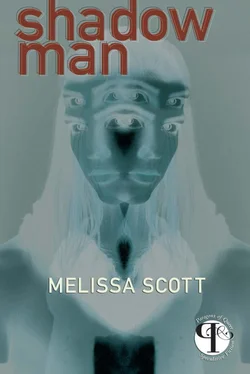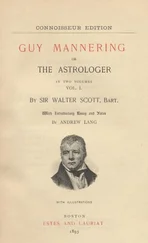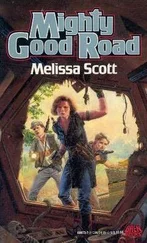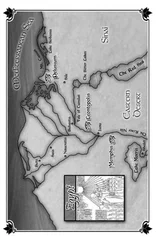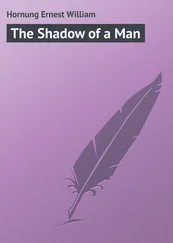She saw him looking, and lifted an eyebrow. “Problem?”
“Just thinking,” Warreven answered, and Folhare gave him another smile.
“I’d be careful of that, if I were you.”
“Thanks,” Warreven said sourly, and they reached the top of the hill. The landward slope was gentler, and the street was quiet, empty except for a work team unloading crates outside a small chandler’s. The trapdoor in the street was open, the handlers sweating even in the relative cool of the night air; both the driver, sitting with his arms folded on the steering bar, and the storeowner gave them a curious glance as they went, but the clothes were enough to make sure they passed. Seeing them watching, Folhare made a face, but sensibly said nothing.
The club was a small place and very discreet, the door marked only by a faintly glowing touchpad. Folhare laid her hand against it, waiting for a signal; only as she took her palm away did Warreven see the small brass plate that gave the club’s name.
“Jerona’s?” he said, and Folhare shrugged again.
“She runs the place.”
The peephole opened then, and a moment later the door swung back, letting a gust of sound and sweaty air out into the street. Folhare grinned with unforced delight and stepped up into the narrow entranceway. Warreven followed, grimacing as the door closed behind them, doubling the noise. The doorkeeper leaned out of his alcove.
“I know you, serram, but serray—?”
It had been a long time since anyone had given him the off-world title. Warreven drew breath to answer, and Folhare said quickly, “It’s all right, he—3e’s—with me.”
There was a little pause, and then the doorkeeper nodded. “All right.”
The entrance hall opened into a single long room, mechanical bars in the corners, the dance floor brightly lit in the center, the band platform at the far end, and tables and tabourets in the darkness along the walls. It was almost a parody of a traditional mesnie hall, with the band replacing the Important Men and Women and the Names of the ancestors and the carvings of the spirits, and Warreven wondered if it had been done deliberately. Folhare leaned close, the length of gauze brushing his arm, and said in his ear, “Do you want a drink or are you just going to dance?”
“Let’s get a table anyway,” Warreven said, and she gave a snort of laughter.
“Sure, but which side of the hall?”
Warreven looked again. He was used to Shinbone and the other, newer clubs down by the Harbor, where the wry-abed and trade mingled easily. Here the tables were divided, the wry-abed to the left of the band platform, trade—easily distinguished by the mix of off-worlders and indigenes—to the right. He sighed—the mixed bars were easier; trade tended to want him as a herm, and the wry-abed too often wanted actual men—but there really wasn’t much of a choice. “Trade, I suppose.”
Folhare nodded. “You find a table, I’ll get drinks.”
“Let me get this round,” Warreven said, and reached into his pocket. Folhare hesitated only for a moment, then took the proffered assignats .
“All right. But the next one’s on me.”
“No offense,” Warreven said, “but I hope we’ve both found someone else before the next round.”
Folhare flashed him another quick smile and turned away toward the nearest bar. Warreven made his way through the first row of tables—it wasn’t that crowded, but the empty tables tended to be toward the walls, where the lights were dimmer and the customers could see each other less clearly—aware of eyes scanning and dismissing him. He was old for this, certainly, but hoped it was less that than that he wasn’t dressed for trade tonight. The music was ending, the lines of dancers spinning toward the conclusion of the dance, and he picked a table quickly, seating himself with his back to the wall, so he could watch the dance floor. The dance ended with a rattle of quick, high notes from the contre drum, and the lines broke apart as the individual dancers began to move back toward their tables. The noise of conversation was suddenly louder. Warreven smiled at a broad-built indigene with the speckled hair of a sailor, but got only a polite smile in return. The man moved purposefully past him, seated himself at a table of off-worlders, three women and a man, all in drably expensive clothes.
“No luck?” Folhare asked, and set a bottle and a handful of cheap pottery glasses on the table in front of him. Warreven frowned—there were four glasses, not two—and then realized that the men behind her were coming to join them. “You know my clan-cousin Bonnard, I think.”
Warreven nodded. He knew Bonand Stane, all right, and, de-spite their both being of the same Watch, had never been fully sure that he could trust the man. There was no denying that Bonand was a Modernist and wry-abed, but they hadn’t had much else in common.
“This is Alex,” Bonand said, and nodded to the man behind him.
Warreven nodded again, studying the stranger. He was an off-worlder, unmistakably, and as unmistakably new to the planet, fair skin not yet marred by the sun. Classic trade, he thought, and held out his hand in the off-world greeting. “I’m Warreven.”
There was no need to give clan or Watch, not yet—and not ever, given that the man was from another world, no possible kin—but he saw Bonand’s quick, malicious smile and wished he’d given his full name. Alex accepted the handshake with a nod and a quick, flickering glance, interest visibly flaring and then vanishing before Warreven could be quite sure what had gone wrong.
“I need to talk to you, Raven,” Bonand said, and pulled one of the chairs away from the table.
“Sit down, why don’t you,” Warreven answered flatly, and Bonand smiled again.
“I will. I hear I should congratulate you—Stiller seraaliste is nothing to sneeze at.”
He had spoken in franca , and Warreven answered in creole, earning a quick look of thanks from Alex. “Nothing’s been decided yet. I may not remain on the ballot.”
“Temelathe’ll have something to say about that,” Bonand said, switching to creole. His accent was less clear, Warreven noticed, and was meanly pleased. Alex—any trade—was fair game, and he was good-looking. Bonand grimaced, and switched back to franca . “You do know what’s going on, don’t you, Raven? He wants to keep you off his back, and he doesn’t want anyone pushing trade this season. Plus he doesn’t want any clan changing brokers this season. So who better to promote for seraaliste than a man who doesn’t know how to make a bargain?”
Warreven swallowed his first, furious response. “And where’d you hear this bit of gossip?”
“I’m in the White Watch House now, for my sins,” Bonand answered. “In the secretarial pool. It’s not common talk, but it’s what the Important Men are saying. And Temelathe is very pleased with himself for the idea.”
Folhare leaned forward, planting both elbows on the table, all thought of trade, her own business, forgotten for the moment. “That’s pretty baroque, Bonand.”
“So’s Temelathe,” Bonand answered, and laughed nervously, looking over his shoulder. “Well, it explains it, doesn’t it? Why else would he nominate Warreven, they’re not exactly best friends anymore. But if he gets Warreven out of dealing with trade, then that just leaves Malemayn and Haliday to make trouble. And at the same time, with Warreven as seraaliste , he can pretty much count on Stiller staying with—who is it, Raven, Kerendach?”
Warreven nodded.
“As long as you stay with Kerendach, Temelathe gets his cut, Kerendach makes a nice profit, and nothing changes.” Folhare reached for the wine bottle. “And in the meantime, you’re having to play catch-up just to figure out who’s who among the druggists.” She glanced at Alex, made a face. “Sorry. Pharmaceutical companies. But you know what I mean.”
Читать дальше
